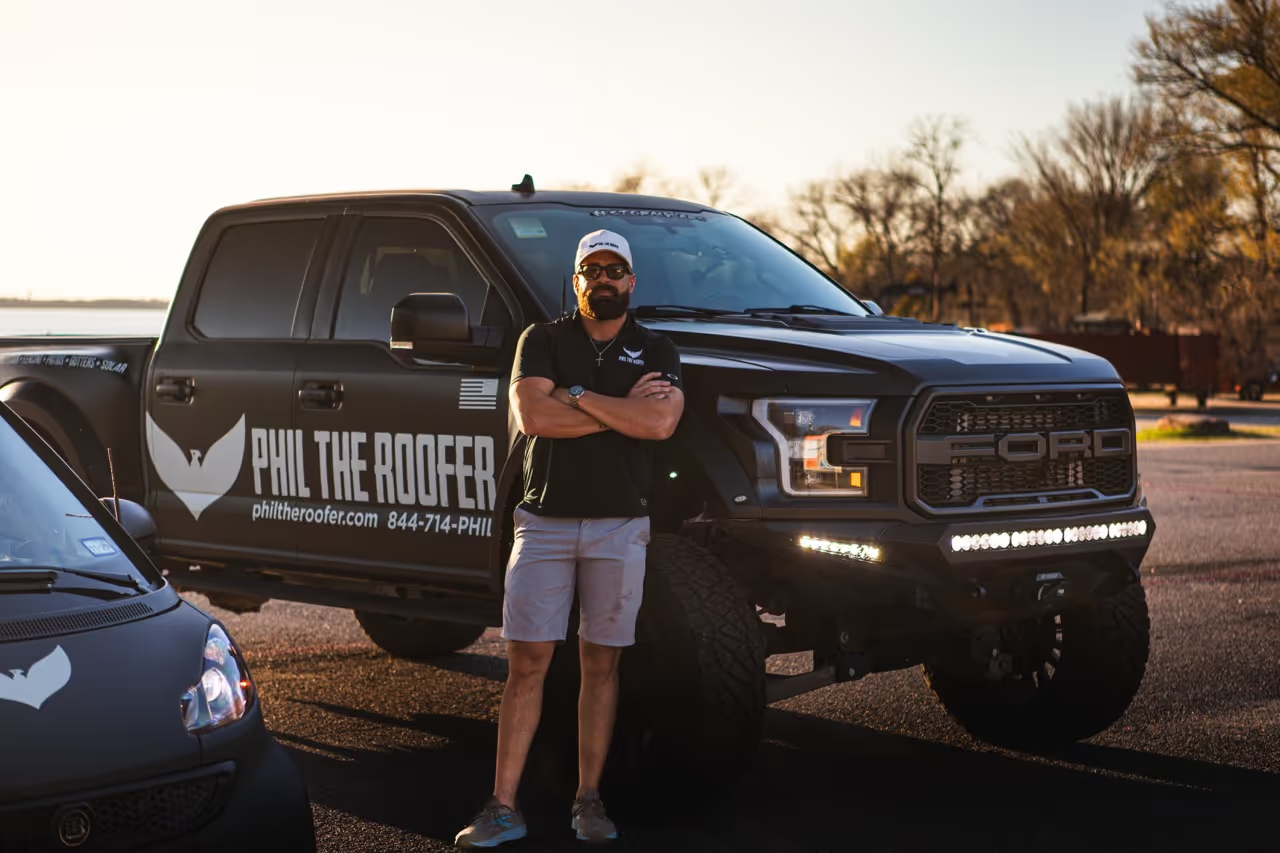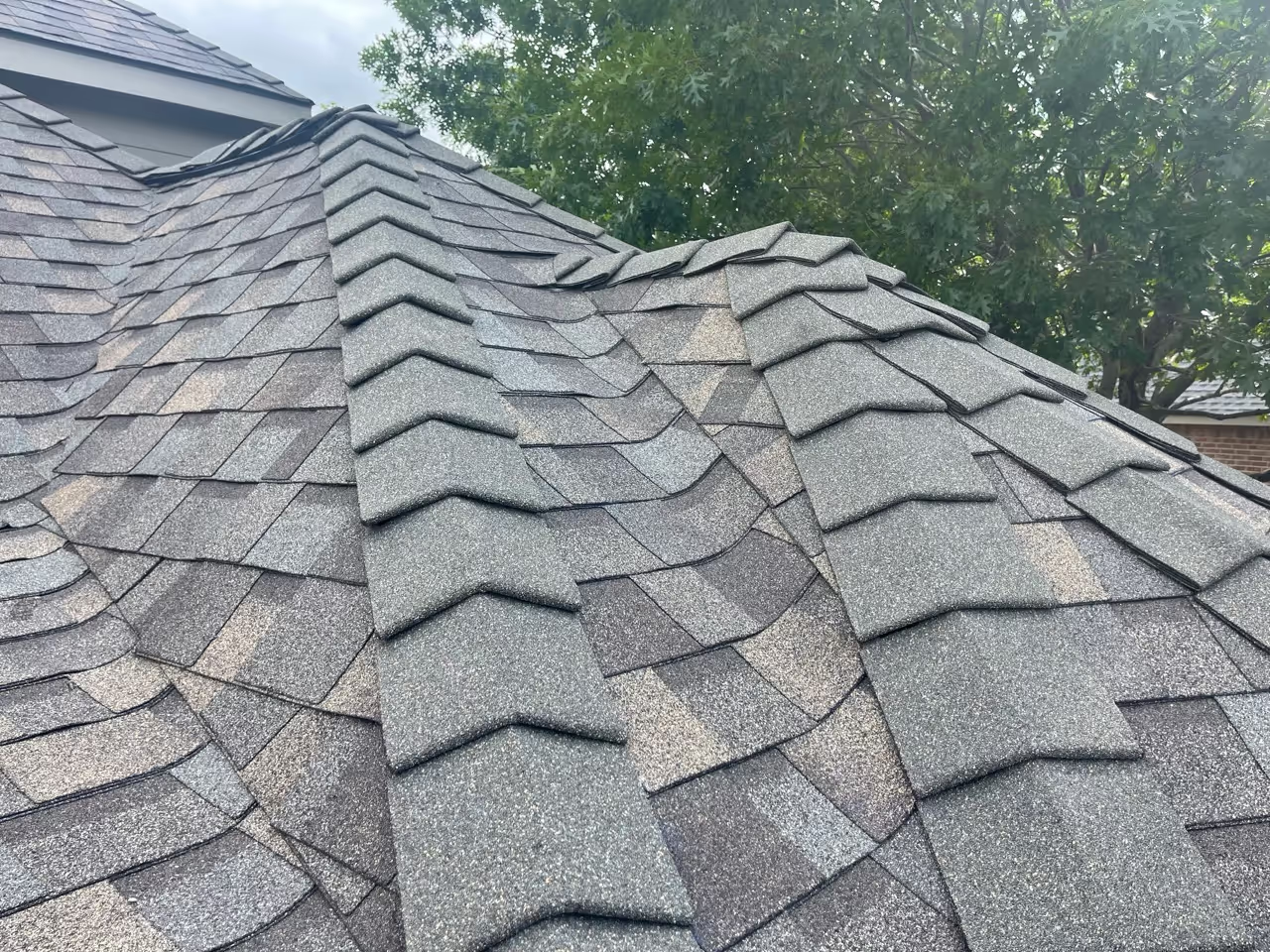View Quick Summary
When your roof insurance claim gets denied, don't give up. Phil's proven appeal strategies have helped hundreds of DFW homeowners overturn denials and get fair coverage. Learn the exact steps, documentation, and legal protections that win Texas roof insurance appeals.
Why Texas Roof Insurance Claims Get Denied
Your roof insurance claim just got denied. The adjuster's report cites "normal wear and tear" or "improper maintenance," and you're staring at thousands in uncovered damage.
Denial doesn't mean game over. It means round two begins.
After 20+ years helping DFW homeowners fight insurance companies, Phil Goodwin knows denial is often the insurance company's opening move, not their final decision.
The Most Common Denial Reasons in Texas
Insurance companies use predictable denial tactics across DFW:
- Normal wear and tear: Used for roofs over 10 years old
- Pre-existing damage: Claims damage existed before recent storms
- Improper maintenance: Suggests homeowner neglect caused problems
- Cosmetic damage only: Argues impact marks don't affect function
- Improper installation: Blames original contractor work
- Documentation insufficient: Claims evidence doesn't support damage extent
Each denial reason has specific counters that experienced professionals know how to deploy.
Texas Insurance Company Strategies
Insurance companies bank on homeowners accepting denials without fighting back. Statistics show only 3% of denied claims get appealed, even though appeal success rates exceed 40% when properly documented.
Companies often deny legitimate claims hoping you'll pay out-of-pocket rather than fight through the appeals process.
Your Legal Rights Under Texas Insurance Law
Texas law provides specific protections for policyholders that insurance companies prefer you don't know about.
Understanding these rights transforms you from victim to informed advocate armed with legal backing.
The Texas Prompt Payment Act
Insurance companies must investigate claims within specific timeframes:
- 15 days: Acknowledge receipt of your claim
- 15 business days: Begin investigation after receiving all materials
- 15 business days: Accept or deny claim after completing investigation
- 5 business days: Pay accepted claims
Violations of these timelines give you leverage in appeals and potential grounds for bad faith claims.
Your Right to Independent Appraisal
Texas Insurance Code gives you the right to independent appraisal when you disagree with settlement amounts.
This process involves neutral third parties evaluating damage and determining fair compensation. You pay for your appraiser, insurance pays for theirs, and if they disagree, an umpire makes the final decision.
Insurance companies often settle rather than face independent appraisal because neutral evaluators typically find more damage than company adjusters.
Bad Faith Insurance Practices
Texas recognizes several bad faith practices that can result in additional damages:
- Unreasonably delaying investigations or payments
- Failing to properly investigate claims
- Misrepresenting policy provisions or coverage
- Refusing to pay without reasonable basis
- Forcing unnecessary litigation
Documenting bad faith behavior strengthens your position and may entitle you to attorney fees and punitive damages.
Insurance company giving you the runaround? Phil knows your rights and how to enforce them. Call 844-714-7445 for expert claim appeal assistance.
Building Your Appeal: Documentation That Wins
Successful appeals require systematic evidence that contradicts the insurance company's denial reasons.
Random photos and angry letters don't work. Professional documentation following specific protocols does.
Addressing "Normal Wear and Tear" Denials
The most common denial requires the strongest counter-evidence:
- Weather event documentation: National Weather Service reports showing specific storm dates, hail sizes, and wind speeds
- Impact pattern analysis: Professional photos showing distinct hail impact marks vs. granule loss patterns
- Roof age vs. damage timeline: Installation records proving damage occurred after recent storms
- Manufacturer specifications: Documentation showing impact damage voids warranties regardless of roof age
- Collateral damage evidence: Photos of storm damage to gutters, HVAC units, and other property components
This evidence package proves storm damage, not aging, caused your roof problems.
Countering "Pre-existing Damage" Claims
Insurance companies claim damage existed before recent storms to avoid coverage:
- Historical photos: Real estate listings, Google Street View, or family photos showing roof condition before recent storms
- Previous inspection reports: Documentation showing no damage noted in recent professional inspections
- Weather timeline analysis: Proof that damage patterns match recent storm events, not older weather
- Maintenance records: Documentation showing proper care and recent repairs
Fighting "Improper Maintenance" Denials
Prove you maintained your roof properly:
- Maintenance receipts: Professional cleaning, inspection, and repair records
- Contractor testimonials: Written statements from previous repair contractors
- Photo documentation: Images showing proper gutter cleaning, caulking, and general upkeep
- Warranty compliance: Records showing manufacturer maintenance requirements were followed
The Texas Department of Insurance Complaint Process
TDI provides powerful leverage against insurance companies refusing to honor legitimate claims.
The complaint process is free, effective, and forces insurance companies to respond formally to your concerns.
Filing Your TDI Complaint
File online at tdi.texas.gov with complete documentation:
- Policy number and coverage details
- Claim number and denial letter
- All correspondence with insurance company
- Professional damage assessments
- Weather reports and supporting evidence
- Specific complaint about denial reasons
TDI assigns complaint numbers and requires insurance company responses within 15 business days.
What Happens After You File
TDI reviews your complaint and insurance company response, looking for policy violations or unfair practices.
They can't force claim approval, but they investigate patterns and practices. Companies with multiple complaints face increased scrutiny and potential penalties.
Many insurance companies settle disputed claims rather than face extended TDI review.
Escalating Within TDI
If initial complaint resolution doesn't satisfy you, request formal review by TDI attorneys.
This escalation triggers deeper investigation and can result in formal enforcement actions against insurance companies.
Professional Appeal Letter Strategy
Your appeal letter sets the tone for everything that follows. Insurance companies evaluate your seriousness based on your initial response.
Amateur appeals get amateur responses. Professional presentations get professional consideration.
Essential Appeal Letter Components
Structure your appeal systematically:
- Policy and claim information: Numbers, dates, and adjuster details
- Specific denial reasons addressed: Point-by-point refutation of their claims
- Supporting evidence summary: Reference attached documentation
- Legal authority citations: Relevant policy language and Texas insurance code
- Timeline for response: Request written response within 30 days
- Next step warnings: Mention TDI and independent appraisal options
Language That Gets Results
Professional, firm language works better than emotional appeals:
- Use insurance industry terminology
- Reference specific policy sections
- Cite Texas Insurance Code provisions
- Demand reconsideration, don't request it
- Set deadlines for responses
- Document all communications
Insurance companies respond to strength, not sympathy.
Timeline Expectations
Appeals typically take 30-90 days depending on complexity and insurance company cooperation.
- Days 1-15: Insurance company acknowledges appeal
- Days 15-45: Reinvestigation and review
- Days 45-60: Written response with decision
- Days 60-90: Further negotiation or next steps
Document delays and use them as evidence of bad faith if patterns emerge.
Need help crafting a winning appeal? Phil has successfully overturned hundreds of denials with professional documentation and strategic appeals. Call 844-714-7445 for expert assistance.
Independent Appraisal: Your Secret Weapon
When appeals fail, independent appraisal often succeeds where documentation alone doesn't.
This legal process removes bias and puts neutral experts in charge of damage evaluation.
How Independent Appraisal Works
Both parties hire qualified appraisers who inspect damage and estimate repair costs independently.
If appraisers agree, that amount becomes binding. If they disagree by more than $500, they select an umpire who makes the final decision.
You pay your appraiser's fees ($500-$1,500), insurance pays theirs, and umpire costs are split.
Choosing Your Appraiser
Select experienced professionals with insurance industry knowledge:
- Certified appraisal credentials
- Roofing industry experience
- Insurance dispute history
- Local market knowledge
- Professional references available
Quality appraisers typically find more damage than insurance adjusters, often recovering thousands in additional coverage.
Appraisal Success Rates
Independent appraisal succeeds in 70%+ of disputed cases because neutral evaluators aren't pressured to minimize claims.
Average appraisal awards exceed initial insurance offers by $3,000-$8,000 for roof damage claims.
Insurance companies often settle before appraisal concludes rather than risk higher neutral awards.
When to Consider Legal Action
Legal action becomes viable when claim amounts justify attorney costs and bad faith behavior is documented.
Economic Thresholds for Legal Action
Consider attorneys when:
- Claim amount exceeds $15,000
- Clear bad faith behavior documented
- Multiple appeal attempts failed
- Insurance company violated Texas prompt payment laws
- Pattern of unfair claim handling
Many insurance attorneys work on contingency, taking 25-40% of recovered amounts.
Bad Faith Damage Potential
Texas law allows recovery beyond claim amounts when bad faith is proven:
- Actual damages: Policy amount owed
- Consequential damages: Additional costs from denial
- Attorney fees: Legal costs for pursuing claim
- Interest and penalties: Statutory damages for delays
- Punitive damages: Awards punishing bad behavior
Bad faith cases can result in awards 2-5 times original claim amounts.
Finding Qualified Insurance Attorneys
Look for lawyers specializing in insurance disputes with Texas experience:
- Insurance law specialization
- Contingency fee arrangements
- Texas court experience
- Settlement negotiation skills
- Trial experience if needed
Initial consultations are typically free for insurance disputes.
Success Stories: Real Appeals That Won
Understanding successful appeal strategies helps you model winning approaches.
The Wear and Tear Reversal
Rockwall homeowner faced "normal wear and tear" denial on 15-year-old roof after April hail storm.
Winning strategy included:
- National Weather Service data confirming 2-inch hail
- Professional photos showing distinct impact marks
- Manufacturer documentation proving impacts void warranties
- Neighboring property damage supporting storm severity
- Previous maintenance records showing proper care
Result: Full claim approval for $18,000 roof replacement after 45-day appeal.
The Documentation Victory
Heath homeowner overcame "insufficient documentation" denial through systematic evidence.
Appeal package included:
- Numbered impact photos with measuring references
- Technical damage analysis with hit density counts
- Weather timeline correlating damage to specific storms
- Professional report using insurance industry terminology
- Collateral damage evidence throughout property
Result: $24,000 settlement after independent appraisal process.
Protecting Future Coverage During Appeals
Appeal strategies must balance current claim recovery with future insurability.
Avoiding Coverage Cancellation
Insurance companies sometimes cancel policies during contentious disputes.
Protect yourself by:
- Maintaining premium payments during disputes
- Avoiding multiple simultaneous appeals
- Working through agents when possible
- Documenting all interactions professionally
- Having backup insurance options researched
Managing Claims History
Multiple claims can affect future rates and renewability:
- Space appeals strategically when possible
- Document that appeals address legitimate storm damage
- Maintain detailed records of all weather events
- Work with agents who understand Texas weather patterns
- Consider higher deductibles to reduce claim frequency
Prevention: Avoiding Future Denials
Smart documentation and maintenance practices reduce denial risks for future claims.
Annual Documentation Strategy
Create systematic records that support future claims:
- Professional annual inspections documenting roof condition
- Seasonal maintenance records proving proper care
- Weather event documentation after each significant storm
- Photo archives showing roof condition over time
- Contractor relationships for immediate post-storm assessment
Policy Optimization
Review coverage annually to ensure maximum protection:
- Replacement cost vs. actual cash value coverage
- Understanding deductible structures and implications
- Law and ordinance coverage for code compliance
- Supplemental coverage options for high-risk areas
- Claims history impact on rates and renewability
Take Action: Turn Your Denial Into Victory
Claim denial feels like defeat, but it's actually your opportunity to fight back with professional support.
Insurance companies count on homeowners giving up after initial denials. Don't be part of that statistic.
With proper documentation, professional appeals, and knowledge of your rights, denied claims often become approved coverage.
Phil Goodwin has helped hundreds of DFW families overturn insurance denials and recover thousands in legitimate coverage. His systematic approach combines 20+ years of industry knowledge with proven appeal strategies that work.
Don't let insurance companies keep money that rightfully belongs to you. Your premiums paid for coverage. Your appeal can get it.
Ready to fight back? Phil provides complete appeal assistance including professional documentation, strategic letters, and expert testimony. Call 844-714-7445 now to turn your denial into victory. Don't let insurance companies win by default.
Check Out Some Of Our Other Blogs

Get Your Free Storm Damage Inspection
Don't wait for small roof problems to become expensive disasters. We'll inspect your roof completely free and show you exactly what needs attention. If we find storm damage, we'll help you get it covered by insurance. If your roof is fine, you'll have peace of mind.




